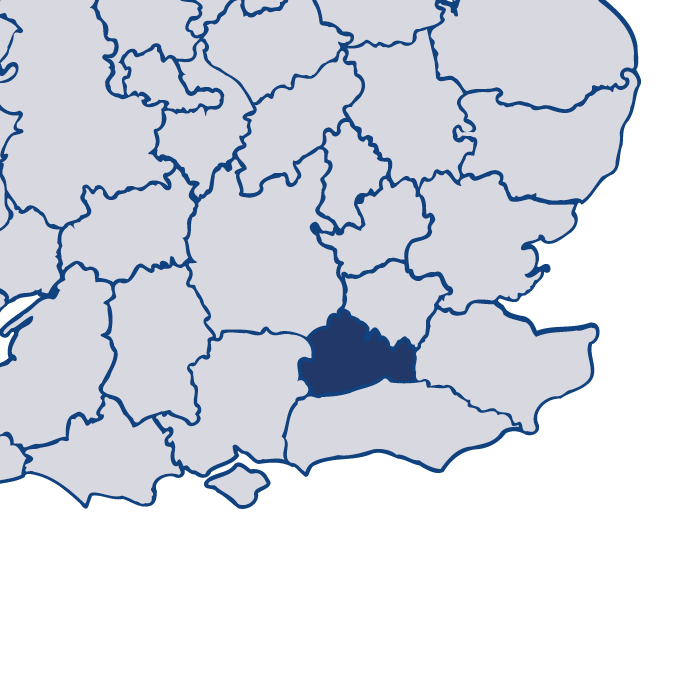Surrey 2014
Read more about SurreyThis is the first PEEL Assessment of Surrey Police. In making this assessment I have used my professional judgment to consider the evidence available from inspections undertaken in the past 12 months.
The available evidence indicates that:
in terms of its effectiveness, in general, the force is good at reducing crime and preventing offending and is good at tackling anti-social behaviour, however it requires improvement in the way it investigates offending;
the efficiency with which the force carries out its responsibilities is good; and
the force is acting to achieve fairness and legitimacy in most of the practices that were examined this year.
HMI's observations
In making this first PEEL Assessment of Surrey I have taken into account the challenges to policing this area.
Surrey’s proximity to London and the motorway network makes the county more vulnerable than others to travelling criminals. Its population density is much higher than the national average, and it includes some of the UK’s most affluent areas. Unemployment is low and the proportion of the workforce engaged in entrepreneurial, professional or management jobs is higher than the national average.
I have been impressed that neighbourhood policing remains at the heart of the Surrey Police’s approach. Anti-social behaviour is a priority and the force uses a wide range of effective tactics to reduce it. The force works well with partners to tackle serious offenders. There is a good victim focus within the force, and a commitment to identifying and supporting the most vulnerable victims.
It is encouraging that Surrey Police is on track to achieve the financial challenge of the spending review. It is planning for the future by taking the necessary steps today, so it is ready to meet future funding requirements.
However, I do have concerns about weaknesses in the quality of crime investigations particularly those involving victims at the highest risk of harm. There is inconsistency in supervision and a lack of resourcing and capability within investigation teams.
I was concerned about the fragmented approach and gaps in the service to some victims of domestic abuse. However, the force has made progress in improving its response to domestic abuse since then.
I also have concerns about the force’s approach to crime-recording, which is not as accurate as it should be. This includes serious sexual offences, domestic abuse and offences against children committed by adults.
Our intention is to examine leadership specifically as part of future PEEL Assessments, once criteria have been established. This will allow us to take account of the College of Policing review of leadership that is currently underway.
Over the past 12 months, there have been a number of inspections made of Surrey that have suggested a number of recurrent issues, in particular the need to improve supervision of crime investigations, especially those involving victims at high risk of harm.
I am particularly interested to see how the force responds to the areas HMIC has identified for improvement over the next 12 months.
Effectiveness
How well the force tackles crime
Last updated 12/11/2014
Surrey Police is good at reducing crime and preventing offending. The force requires improvement in investigating offending. It is good at tackling anti-social behaviour.
Surrey Police has seen bigger reductions in crime between June 2010 and June 2014 than across England and Wales. There is a strong prevention focus to crime and anti-social behaviour.
Neighbourhood policing remains at the heart of the force’s approach and anti-social behaviour is a key priority.
There is a good victim focus within the force and a commitment to identifying and supporting vulnerable victims. However, HMIC was concerned that there are weaknesses in the quality of investigations; HMIC found inconsistency in supervision and a lack of capacity and capability within investigation teams. Additional focus and resourcing to build capacity in this area is needed to ensure a more positive outcome for the victim.
Further insights on effectiveness
The domestic abuse inspection found that there was a fragmented approach and gaps in service to some domestic abuse victims, particularly those assessed as having a standard risk of serious harm. The inspection found that there was a lack of clarity about who was responsible for safeguarding these victims through the criminal justice process and updating victims when a perpetrator is released from prison; this was a concern. The crime inspection found evidence that Surrey had made good progress to improve its response to domestic abuse.
The crime inspection found that the force had established processes for identifying and managing organised crime groups; the most serious crime groups, those who pose the greatest threat to the community, were effectively dealt with in collaboration with Sussex Police and other police partners such as the regional organised crime unit. The force worked with partners to tackle serious offenders and safeguard victims. The force was also working with partners in addressing the risks of so-called ‘hidden crimes’ such as child online grooming and human trafficking.
Efficiency
How well the force delivers value for money
Last updated 12/11/2014
Surrey Police has made good progress, and, through its widening collaboration with Sussex Police, is well placed to manage further austerity in the future.
Surrey has identified that it needs to save £32.5m over the four years of the spending review. The force has a strong track record of achieving savings and for 2013/14 has overachieved its savings target. Surrey has clear plans in place to achieve all the £6.9m savings needed in 2014/15, which will mean that Surrey will meet its spending review challenge.
The force has a clear vision for the future and a well-established change programme to achieve this, with chief officers giving good oversight.
Surrey has an affordable and sustainable operating model, which has successfully supported it in achieving its savings early. It has a culture of reducing unnecessary costs at all levels and this is supported by sound financial management.
Collaborative working is a major part of the force’s future way of working, and the force has reduced its estates, which has resulted in considerable financial benefits.
The force continues to reduce crime, and victim satisfaction is high. HMIC’s assessment is that the force is achieving the required savings today while planning for the future.
Legitimacy
Does the force act with integrity and provide a service the public expects?
Last updated 12/11/2014
Surrey Police has an established professional standards department including an anti-corruption unit. The force has made good progress since the last HMIC inspection, embedding positive behaviour, good standards and a clear plan for implementing the Code of Ethics. The anti-corruption unit capability is effective but its capacity is limited. There is a need to improve how the force reduces the risk of corruption and increases capacity to prevent and investigate.
Further insights on legitimacy
The Crime Survey of England and Wales (12 months to March 2013) found that the proportion of respondents who think that the force does an excellent/good job was greater than the figure across England and Wales. The same survey over the same period also found that the proportion who agree that the force deals with local concerns was greater than the figure for England and Wales. The force’s own victim satisfaction survey (12 months to June 2014) found that the proportion of victims who were satisfied with their experience was broadly in line with the figure across England and Wales.
The crime data integrity inspection found that operators listened carefully to the public with empathy and understanding, and accurately recorded the circumstances on the incident record. The domestic abuse inspection found that contact centre staff were trained to question callers to establish the nature of the call and the risk level. Staff researched police databases to gather available information and passed this on to attending officers; this part of the process worked well.
As a result of the crime data integrity inspection, HMIC is concerned that a notable proportion of reports of crime are not being recorded, and this means that victims of crime are not receiving the service they should when they first report a crime. HMIC is also concerned with the accuracy of the decisions taken by the force when making no-crime decisions (cancelling a recorded crime) as too many of these are incorrect. The force needs to take action to improve, serve the victims of these crimes and provide the public with confidence in the force’s crime data.
Key facts – 2019/20

Force Area
Population
Workforce
Victim-based crimes
Cost
Points of context provided by the force
Surrey has one county council, eleven boroughs/districts, and six clinical commissioning groups with 5 major hospitals.
It is the most densely populated county in south eastern England, with a growing population. The force works closely with Sussex Police.
Police and crime plan priorities
The People’s Priorities: a zero tolerance policing approach; more visible street policing; victims put at the centre of the criminal justice system; the opportunity to have greater say in how your streets are policed; to protect your local policing; be uncompromising in the standards you expect from your police.
These are the priorities of the Surrey residents. Our streets belong to law abiding citizens, not to criminals and yobs. I believe passionately that Surrey can be a better, safer place if we work together to lay down the marker for the standards of behaviour we expect in our communities.





